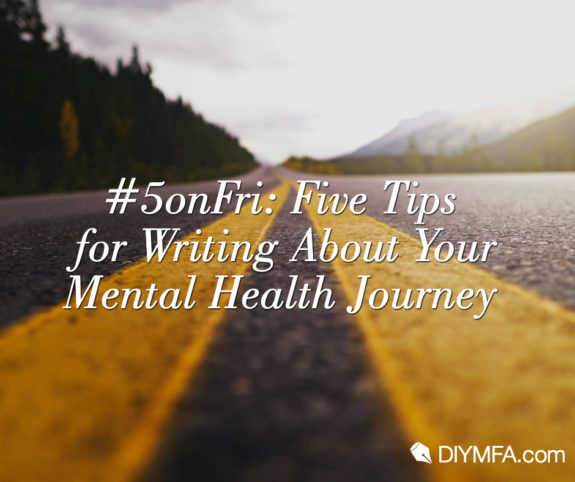May is Mental Health Awareness Month. One in five U.S. adults live with mental illness, yet it is still a taboo topic in our personal and professional lives. Those with mental illness are often driven to live with their suffering in silence for fear of damaging their relationships and credibility. I have lived with mental illness my entire life but felt the need to keep it hidden until I wrote a memoir about my unique healing journey.
At age thirty-three, still fairly recent into treatment for anxiety, depression, and bipolar disorder, I took up the Korean martial art of taekwondo, something I’d done as a child and had longed to return to. As I grew in my martial arts practice, I became more introspective about my mental and emotional health. Writing about my emotional growth first on my blog, Little Black Belt and later in my book Kicking and Screaming: a Memoir of Madness and Martial Arts gave me the courage to share my mental health experience with the world.
Here are five writing tips that can help you work through your mental health challenges and bravely share your story with others who can benefit from it:
1. Write for discovery.
Before I started a blog and wrote a memoir, I journaled. Journaling is an excellent tool for seeing a situation objectively and noticing patterns, reactions, and results. Some things were working for me, and others were destructive habits I needed to break. Journaling builds a writer’s self-awareness that can aid the recovery process and fine-tune the writer’s ability to articulate his or her experience for an audience.
2. Write for epiphanies.
In addition to strengthening your self-awareness, the objectivity of journaling can inspire insights and epiphanies. As you write about your experiences, thoughts, reactions, and reflections, you may be surprised by the profound realizations you gain about yourself and your life. Take these realizations as valuable lessons for how to heal from old wounds, cope with future stressors, and pursue your goals.
3. Write for lessons learned.
The insights you have about your own mental health journey are teachable moments you can share. Whether you consider yourself a cautionary tale or feel you’ve discovered the secret to success, use what you’ve learned to teach others. As a martial arts instructor, I’ve found that my own technique has improved when I’ve taught others. As you share your lessons about mental health, use the power of new knowledge to improve your own mental health situation.
4. Write for connection.
Having a mental illness is a lonely feeling. The societal stigma against mental illness infects our workplaces, our social settings, and our homes. Writing and sharing your mental illness story is a way to connect with others who share your experience. Connecting with others is a way to soothe the loneliness and isolation that can come with mental illness and share valuable lessons and insights that can help others on their mental health journeys.
5. Write for advocacy.
As I began to publicize my book Kicking and Screaming I had to confront my own bias against mental illness. I’d kept my conditions secret from most people in my life for fear of discrimination, and now I was asking people to engage in my story. It would be hypocritical to promote a book about mental illness while shying away from advocating for my own needs and for the needs of others. I became more vocal in my personal life about my mental health needs, including in my corporate job. I’ve learned to use my platform to bring attention to how common mental illness is and how people who suffer from it need support.
Writing about one’s mental health requires vulnerability and courage. Your writing talent gives you the power to both advance in your own recovery journey and to help others.

Melanie Gibson is a second degree black belt in taekwondo and the author of the new book, Kicking and Screaming: A Memoir of Madness and Martial Arts (She Writes Press).







